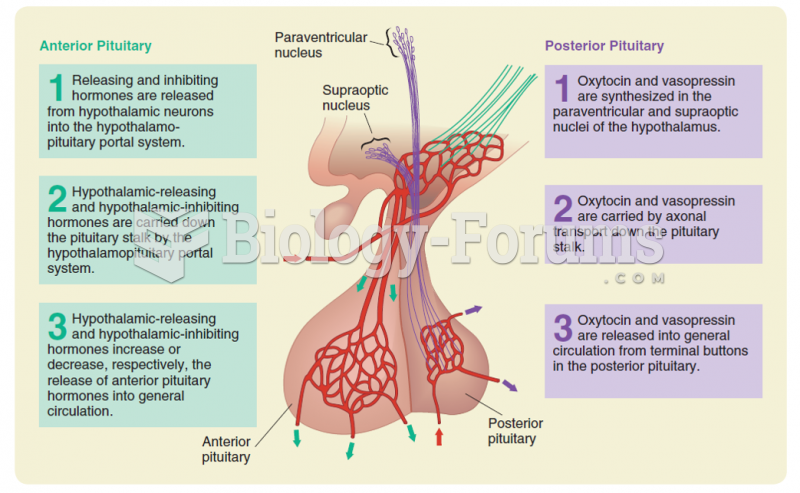|
|
|
A strange skin disease referred to as Morgellons has occurred in the southern United States and in California. Symptoms include slowly healing sores, joint pain, persistent fatigue, and a sensation of things crawling through the skin. Another symptom is strange-looking, threadlike extrusions coming out of the skin.
Only 12 hours after an egg cell is fertilized by a sperm cell, the egg cell starts to divide. As it continues to divide, it moves along the fallopian tube toward the uterus at about 1 inch per day.
The first oral chemotherapy drug for colon cancer was approved by FDA in 2001.
The Romans did not use numerals to indicate fractions but instead used words to indicate parts of a whole.
In the United States, there is a birth every 8 seconds, according to the U.S. Census Bureau's Population Clock.







